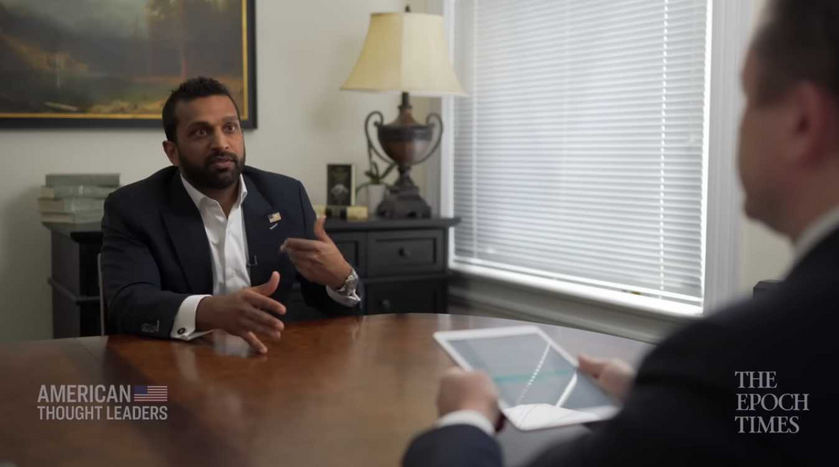Executive Summary
Introduction
Background:
The Spygate Investigation:
The Steele Dossier and FISA ApplicationPatel’s review of the Carter Page FISA application revealed that the Steele dossier was the primary basis for the surveillance warrant, despite its lack of corroboration. Typically, FISA applications are comprehensive, supported by credible witnesses and hard evidence. However, Patel found the dossier’s allegations unsubstantiated, with no additional evidence to support claims of Trump-Russia collusion. This discovery raised concerns about the FBI’s due diligence and potential bias in the application process.
Following the MoneyPatel employed a “Prosecution 101” approach: follow the money. Through a source, the investigation identified financial transactions linking Fusion GPS, the firm hired by the DNC and Clinton campaign, to Christopher Steele. The DNC and Clinton campaign paid over $160,000 through the law firm Perkins Coie to Fusion GPS, which in turn compensated Steele for compiling the dossier. This financial trail confirmed the dossier’s political origins, undermining its credibility as an intelligence source.Witness InterviewsPatel and his team interviewed approximately 60 witnesses, including former attorneys general, senior DOJ and FBI officials, and intelligence community leaders.
Each was asked a precise, legally formulated question: “Do you have any information that the Trump candidacy and his team colluded, conspired, or coordinated with the Russian government?” All witnesses, under oath, answered “no,” contradicting public narratives propagated by some media outlets and Democratic officials.The Nunes MemoIn January 2018, the House Intelligence Committee released the Nunes memo, a document summarizing the investigation’s findings. The memo was carefully crafted to include only verified information from witness interviews and DOJ/FBI documents, ensuring compliance with House rules for releasing classified information. It revealed that:
- The Steele dossier formed the bulk of the Carter Page FISA application.
- The FBI failed to disclose the dossier’s funding by the DNC and Clinton campaign to the FISA court.
- No evidence supported allegations of Trump-Russia collusion.
- Nellie Ohr’s Role: Ohr’s involvement with Fusion GPS raised concerns about conflicts of interest, given her husband’s senior position at the DOJ.
- FBI’s Admission: In a closed-door interview, then-FBI Deputy Director Andrew McCabe admitted that the FISA warrant on Carter Page would not have been sought without the Steele dossier.
- Exculpatory Evidence Withheld: The investigation uncovered instances where the FBI failed to disclose exculpatory evidence to the FISA court, violating legal standards.
- Kevin Kline Smith: An FBI lawyer was found to have doctored an email to support the FISA application, a serious breach of protocol.
- Limited Congressional Authority: Unlike his DOJ tenure, where grand jury subpoenas ensured document access, Congress lacked similar enforcement power. Patel noted that Congress was “where good investigations go to die,” as described by former Representative Trey Gowdy.
- Media Attacks: Democratic leaks to the media led to personal attacks on Patel, with articles labeling him a “genocidal dictator” and challenging his integrity. These attacks extended to his family, causing personal distress.
- Internal Resistance: DOJ and FBI officials, including Deputy Attorney General Rod Rosenstein, resisted the investigation. Rosenstein threatened to subpoena congressional records, an unprecedented move against constitutional oversight.
- Legal Challenges: Fusion GPS attempted to block a subpoena for financial records, leading to a months-long federal court battle.
- Including only verified excerpts from witness interviews and official documents.
- Safeguarding sources and methods to protect national security.
- Obtaining approval from the House Intelligence Committee and the Speaker of the House.
- Identifying Relevant Materials: Patel targeted transcripts, text messages, and DOJ/FBI documents that had not been fully released or were heavily redacted.
- Legal and Ethical Review: Declassification required careful review to ensure compliance with national security protocols. Patel’s team removed redactions where possible without endangering sources or methods.
- Public Release: Documents, including witness transcripts and text messages between FBI officials Peter Strzok and Lisa Page, were made public, allowing Americans to evaluate the evidence directly.
Impact and ImplicationsAccountabilityThe investigation led to the resignation or firing of 14 high-ranking officials, including the FBI director and deputy director, demonstrating some measure of congressional oversight. However, Patel expressed frustration that only one individual, Kevin Kline Smith, faced charges, suggesting a lack of internal accountability at the DOJ.Public AwarenessThe release of the Nunes memo and declassified documents educated the public about government misconduct, serving as a “civics lesson” on the U.S. system of governance. However, Patel acknowledged that a significant portion of the public remains unaware or skeptical of the findings.Erosion of TrustThe Spygate scandal highlighted systemic issues, including:
- FISA Abuse: The misuse of the FISA process to target a political campaign raised concerns about surveillance overreach.
- Media Bias: Contradictions between public statements and sworn testimony underscored the media’s role in promoting misleading narratives.
- Political Polarization: The investigation revealed stark differences in accountability standards between political parties, undermining public trust.
Broader Context:
- Truth-Seeking: His insistence on releasing documents and transcripts allowed the public to evaluate evidence independently.
- Accountability: He views DOJ indictments as the ultimate form of closure for the Spygate scandal.
- Resilience: Despite media attacks and institutional resistance, Patel remained focused on the mission, supported by his team and family.
Conclusion:
Recommendations
- Strengthen FISA Oversight: Congress should implement stricter guidelines to ensure FISA applications are supported by verified evidence and disclose potential biases.
- Enhance Congressional Subpoena Power: Reforms are needed to bolster Congress’s ability to acquire documents for oversight investigations.
- Promote Transparency: Agencies should streamline declassification processes to balance national security with public access to information.
- Address Media Accountability: Mechanisms to counter false narratives and protect individuals from defamation should be explored.
- Pursue DOJ Accountability: The Department of Justice should prioritize prosecuting individuals involved in misconduct to restore public trust.
References
- The Epoch Times, “American Thought Leaders: Kash Patel Interview,” March 2021.
- House Intelligence Committee, “Nunes Memo,” January 2018.
- Lee Smith, The Plot Against the President, 2019.
- Inspector General Report on FISA Abuses, December 2019.
- FindingManny.com, Garden City Film Festival, March 28, 2021.
Note: This white paper is based solely on the provided interview transcript and does not incorporate additional external sources unless explicitly mentioned in the interview. Source link below.













